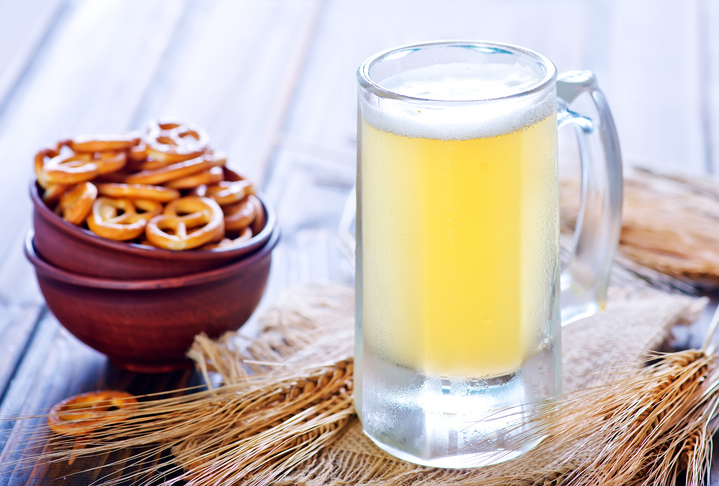 Does beer have carbohydrate? How much carbohydrate is in a can of beer? How many calories are in a can of beer? Do all types of beer have the same carbohydrate content? As a diabetes educator these are the types of questions I’m asked on a daily basis — especially during the hot summer months. For people with diabetes it’s important to evaluate the calorie and carbohydrate content of all beverages and foods consumed. But finding the nutrition information for beer is not always easy. That is, until now.
Does beer have carbohydrate? How much carbohydrate is in a can of beer? How many calories are in a can of beer? Do all types of beer have the same carbohydrate content? As a diabetes educator these are the types of questions I’m asked on a daily basis — especially during the hot summer months. For people with diabetes it’s important to evaluate the calorie and carbohydrate content of all beverages and foods consumed. But finding the nutrition information for beer is not always easy. That is, until now.
READ: Black Men & Diabetes: Superfoods for Life
This month the Beer Institute introduced the Brewers’ Voluntary Disclosure initiative by which member companies like Anheuser-Busch, MillerCoors, HeinekenUSA, Constellation Brands Beer Division and others, will voluntarily provide you with meaningful information about their products.
Through this initiative beer companies will change their labels or packaging to include calories, carbohydrates, protein, fat and alcohol by volume, by including a serving facts statement. In addition, they will provide freshness dating, and disclose ingredients via a list, a reference to a website with the information, or a QR code. You’ll no longer have to wonder about the grams of carbohydrate or calories in beer.
“The Beer Institute, and its member companies, is proud of its commitment to quality and transparency,” says Dr. Joy Dubost RD, Senior Director of Science at the Beer Institute. Dubost, a registered dietitian, is keenly aware of how important nutrition labeling is for consumers — particularly those with diabetes. “We believe including a serving facts statement, which includes calories, carbohydrates, protein, fat, and alcohol by volume, on all products as well as disclosing ingredients will empower consumers when they make decisions regarding the beer of their choice.”
You can expect to see this information in the marketplace immediately and many companies have committed to provide this information on all of their product labels, packaging or websites by the end of 2020.
Tips Before You Sip
People with diabetes should follow the same guidelines as those for the general public who choose to drink alcoholic beverages. Moderation is key. Women should have no more than one drink per day and men should have no more than two drinks per day. One 12 ounce beer is considered one drink.
For good blood glucose control and weight management you need to evaluate both the calories and carbohydrate content of beer before drinking. Heavy craft beer can have double the carbohydrate and calories compared to light beer.
- 12 oz Light Beer; 60-100 calories; 2-8 grams carbohydrate
- 12 oz Beer; 120-150 calories; 10-12 grams carbohydrate
- 12 oz Stout Beer; up to 300 calories; up to 20 grams carbohydrate
Don’t forget to check with your doctor or diabetes health care team to determine if drinking beer is safe for you. Many individuals who are taking certain over-the-counter or prescription medications should not drink alcoholic beverages.








